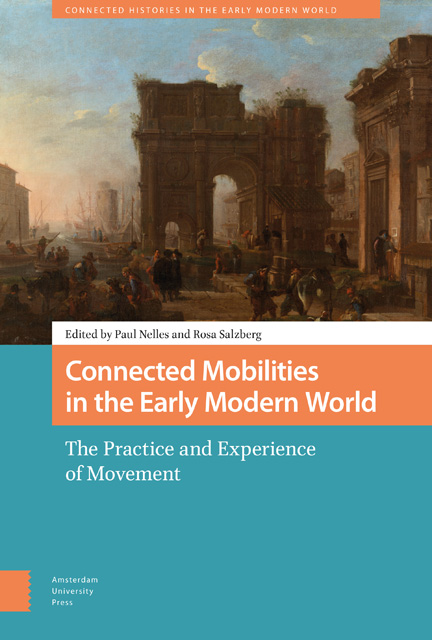4 - Mobility and Danger on the Borders of the Papal States: (Sixteenth-Seventeenth Centuries)
Published online by Cambridge University Press: 15 June 2023
Summary
Abstract
This chapter examines the Inquisition’s attempts to control the movement of students and merchants within the Papal States. The Roman Inquisition attempted to monitor the movements of ‘heretical’ foreign students, merchants, artisans, artists, and diplomats. Yet such figures moved frequently and as such were not easy to control, convert, or expel. In many cases, local authorities tried to apply the rigorous guidelines defined by pontifical law, although these were difficult to apply in practice. Inquisitors and their agents in the Papal States were frequently unable to act decisively or coherently. The rich documentation allows us to observe the daily activities of people directly involved in controlling movement.
Keywords: Roman Inquisition; Papal States; merchants; students; universities; heresy
This chapter focuses on the Roman Inquisition’s efforts to protect the borders of the early modern Papal States. This territory posed particular challenges to the Inquisition because it was both geographically complex and marked by distinct political characteristics dating back to the Middle Ages. The main sources used are the correspondence between the Roman tribunal of the Inquisition and its peripheral branches – local deputies (vicari) and Inquisitors – and other officials such as bishops, governors, and municipal magistrates who wielded local authority. This rich body of documentation allows us to observe the daily activities of the various actors involved in controlling mobility in the Papal States and the difficulties encountered in regulation. The competence and ineptitude of the tribunal’s agents emerge in equal measure from these documents. The letters also enable us to observe how the “tribunal of the faith” and its intimidating system of justice were perceived by a particularly vulnerable population: the foreigners – especially students, merchants, and artists – who came to Italy from countries beyond the Alps where the Reformation had established itself.
In the early modern period, the borders inside Europe – the Italian states included – increased in number as an expression of the consolidation of geographic, political, religious, or economic power. These new frontiers created new confessional boundaries and identities. Looking at the edges of territorial boundaries illuminates this process of consolidation from several viewpoints. They reveal the external perceptions of frontiers that students, merchants, and artists had and the strategies of prudence and subterfuge they employed in negotiating them.
- Type
- Chapter
- Information
- Connected Mobilities in the Early Modern WorldThe Practice and Experience of Movement, pp. 113 - 132Publisher: Amsterdam University PressPrint publication year: 2022

